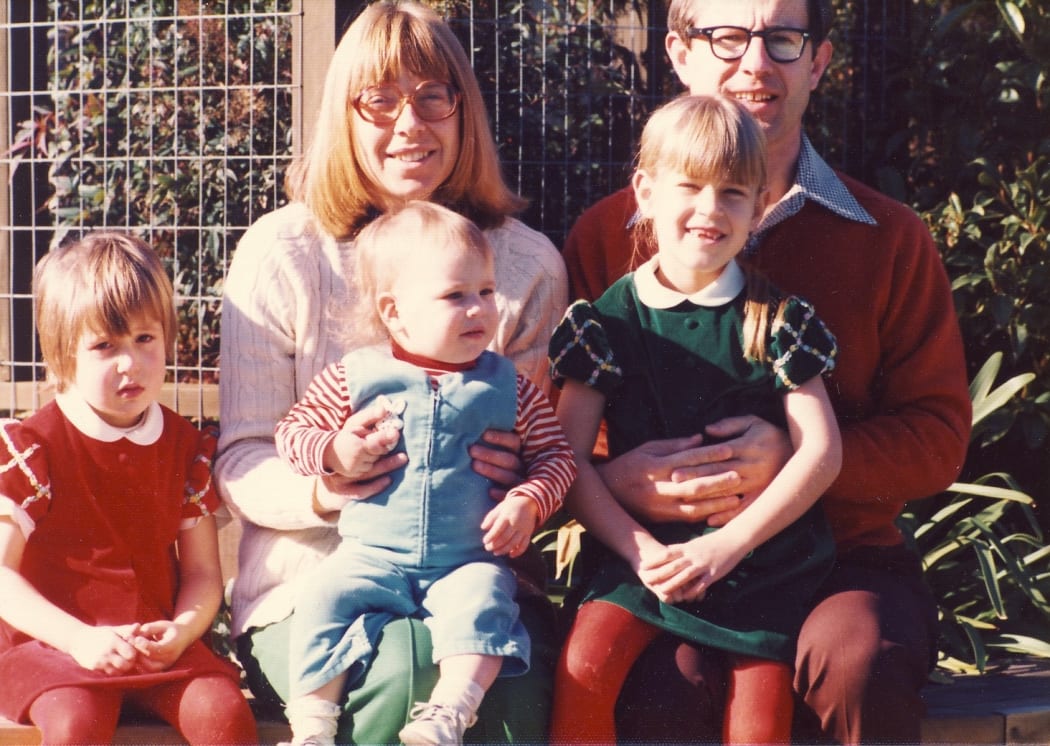Leading educator and journalist in the US Esther Wojcicki believes parents need to empower their children by giving them responsibilities at a young age.
It’s how she raised her own children and something she writes about in her new book called How to Raise Successful People: simple lessons for radical results.

Photo: supplied
Founder of the Media Arts program at Palo Alto High School, where she built a highly successful journalism program, Wojcicki has been involved with Google since its inception and was part of setting up the Google Teacher Academy.
She's also the mother of three high achieving daughters: Susan - CEO of Youtube, Anne, co-founder of DNA testing firm 23andMe - married to Google founder Sergei Brin, and Janet - a leading medical researcher.
Her three daughters say they were raised “the Woj way”, Wojcicki describes it as empowering.
“The main thing I was trying to do with them when they were very small was give them a lot of independence, I think that was my number one goal because there were no parenting books out there that I really wanted to follow.”
She built into their daily life little steps towards independence. “When you feel confident that you can do something, that confidence spreads to other areas of your life.”
When her middle child Janet was born, her eldest child Susan, at the time 18 months old, spent a lot of time watching her younger sister. She was the baby monitor, says Wojcicki, because there weren’t electronic monitors then.
“She played in the family room and whenever Janet was fussing, she would let me know.”
The girls learnt their letters on Sesame Street and then learnt the street signs so that they could always know where they were, Wojcicki says.
Wojcicki herself grew up in a family without a lot of resources. Her parents were both immigrants from Russia, her father was an artist and the family didn’t have a lot of money. She says he came from an ‘old world’ culture, her father was a heavy subscriber of “spare the rod, spoil the child” and she was hit if she did anything wrong.
When Wojcicki was a ten-years-old her young 18-month-old brother David found a bottle of Aspirin and ate a load of pills. Her mother, not knowing what to do, called the doctor who told her to put him to bed and see how he is in a few hours. David was violently ill in a few hours and was taken to a clinic where his stomach was pumped. The family looked for a hospital where he could stay for a few days but without proof of payment they were rejected, and David died.
“What this did to me, of course it was very tragic and very sad as a child, but what it said to me subconsciously was no matter what somebody's title was, and no matter how important they were, I always had to verify what they said, I always had to check and see if it was accurate.”
She became a bookworm, and a sceptic, she says.
Wojcicki’s parents then began to concentrate all of their attention on her other brother, over coddling him in an effort to protect him, she says. They expected Wojcicki to help them.
“I learned a lot of things that I learned out of necessity because that’s what I had to do, I was very good at cooking and cleaning and taking care of him and doing whatever was needed. And by accident, it was a by-product, I became very empowered, I realised that I could do a lot of things.”
When she was in her 20s, she forgave her father for the way he treated her, realising that he was just a product of the environment he grew up in.
“I realised being angry, and carrying anger, was only hurting me and so I decided that it was best to forgive him and I did.”
With her own children, she wanted them to feel that they were trusted and respected. She concentrated a lot on the ages up till five, because she says after that much of their time is spend in the school system.
She thinks a lot parents today do everything for their child because they believe they’re responsible for the child’s happiness. “I’m trying to warn everybody that that’s probably not the best route.”
It’s better to give your child responsibility, to make them feel good about themselves, she says.
“You are not responsible for your child’s emotions, you are responsible for creating an environment for them that allows them to flourish.”

